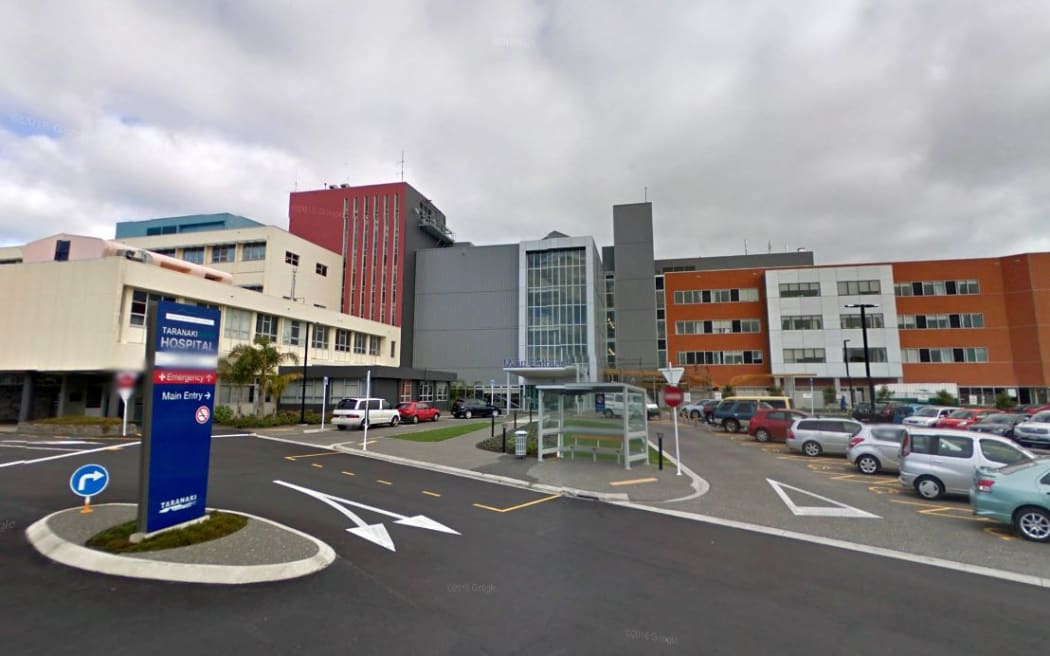
In her complaint, the woman raised concerns, including that staff at Taranaki Base Hospital did not acknowledge her pregnancy was "high risk". Photo: Google Maps
The care of a Taranaki woman whose baby died during her pregnancy was not up to scratch, according to a report from the deputy health and disability commissioner.
The woman in her 20s lived with type 1 diabetes and a range of other conditions, including asthma and anxiety.
Deputy commissioner Rose Wall said the care provided by Te Whatu Ora Taranaki did not support the woman to adequately manage her diabetes throughout her pregnancy.
"Sadly, the woman miscarried at eight months," she said.
Her report found Taranaki District Health Board (now Te Whatu Ora Taranaki) breached the Code of Health & Disability Services Consumer's Rights (the Code) for failing to provide an appropriate standard of care to a pregnant woman with diabetes.
Wall said her role was not to determine what caused the death of the woman's baby, but to determine whether the care provided to the woman was reasonable in the circumstances and consistent with the accepted standard of care.
She recommended Te Whatu Ora Taranaki write an apology to the woman and make a raft of changes to its services.
Her report did not identify concerns with the midwifery and obstetrics care provided to the woman and its focus was limited to the Taranaki DHB endocrinology service's management of the woman's diabetes during her pregnancy.
In her complaint, the woman raised concerns, including that staff at Taranaki Base Hospital did not acknowledge her pregnancy was "high risk", and that she was being perceived as "over anxious", and that no investigations were undertaken in the final three weeks of her pregnancy, despite an escalation symptoms.
"I came into TDHB [ED] and labour ward during my pregnancy with varying symptoms including one visit via emergency helicopter, but did not feel listened to," she said.
The woman was given the opportunity to comment on the report's provisional findings and she told the HDC she got "very high levels of anxiety as a result of [the events]" and had engaged in counselling, which had not been helpful.
Te Whatu Ora Taranaki accepted the report's findings and recommendations.
"On behalf of Te Whatu Ora -Taranaki I wish to reiterate our deep sympathy to [Ms A] for the very sad loss of her treasured son, [Baby A]. We want to assure [Ms A] that we have taken the matters raised in her complaint very seriously and that we are committed to continuing to improve the services that we provide."
Wall said at the time of the woman's care, Taranaki DHB did not have an established antenatal diabetes multidisciplinary team (which enabled input from a diabetes midwife, an obstetrician, an endocrinologist, a diabetes clinical nurse specialist, and a dietician). As a result, the obstetrics team and diabetes team were providing the woman with care from separate clinics.
She said this resulted in a clear disconnect between the two specialities and did not enable effective co-ordination of clinical care.
Her report found Te Whatu Ora Taranaki failed to provide the woman with an appropriate standard of care in the following ways:
- She was not seen for an initial consultation with the diabetes service in a timely manner, due to an administrative error
- A dietician review was not arranged in a timely manner, owing to the referral not being marked as 'urgent' for the medical typists
- A clinical nurse specialist review was not undertaken regularly, resulting in the woman being seen by the diabetes clinical nurse specialist on only four occasions throughout her pregnancy
- Care between the diabetes and antenatal services was not co-ordinated effectively
"I consider that the failings in this case indicate systems issues … In my view, the failure to co-ordinate the woman's care effectively resulted in her not receiving services of an appropriate standard throughout her pregnancy."
Wall found Taranaki DHB breached Right 4(1) of the Code, which stated that every consumer had the right to services provided with reasonable care and skill and also Right 4(5), that every consumer has the right to co-operation among providers to ensure quality and continuity of services.
Since these events, Taranaki DHB sought an external review of the care provided to the woman and had told HDC it had made several changes as a result of the complaint, including the following:
- A multidisciplinary team clinic (MDT) has been set up to co-ordinate the care of women with diabetes during pregnancy. The team includes a consultant obstetrician, a consultant endocrinologist, a diabetes nurse specialist, and an antenatal clinic co-ordinator
- The Dietician Department had commenced recruitment for two full-time dieticians who focused solely on diabetes. One would be required to attend the MDT meetings
- Two further staff had been employed specifically to support Māori patients within the diabetes service (Kaitautoko)
- Diabetes MDT meetings were now held fortnightly, with the 'Diabetes in Pregnancy Management' guidelines being progressed as part of the MDT meetings with medical leadership
In light of the changes already made, Wall recommended Taranaki DHB:
- Provide a written apology to the woman for the issues identified in the report
- Provide an update on the progress of actions taken in response to the recommendations made in the internal review
- Provide results of the documentation audit that was conducted, and the changes that have been implemented to address any concerns raised by the audit
- Use this case (anonymised) as a case study for the maternity/diabetes service multidisciplinary team, to highlight the importance of careful planning and management of women with diabetes during pregnancy




